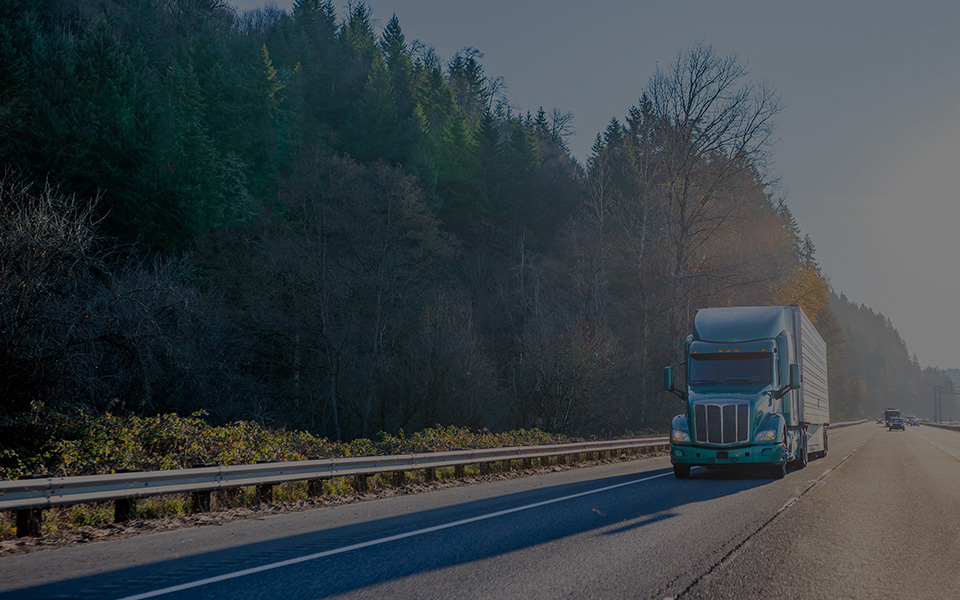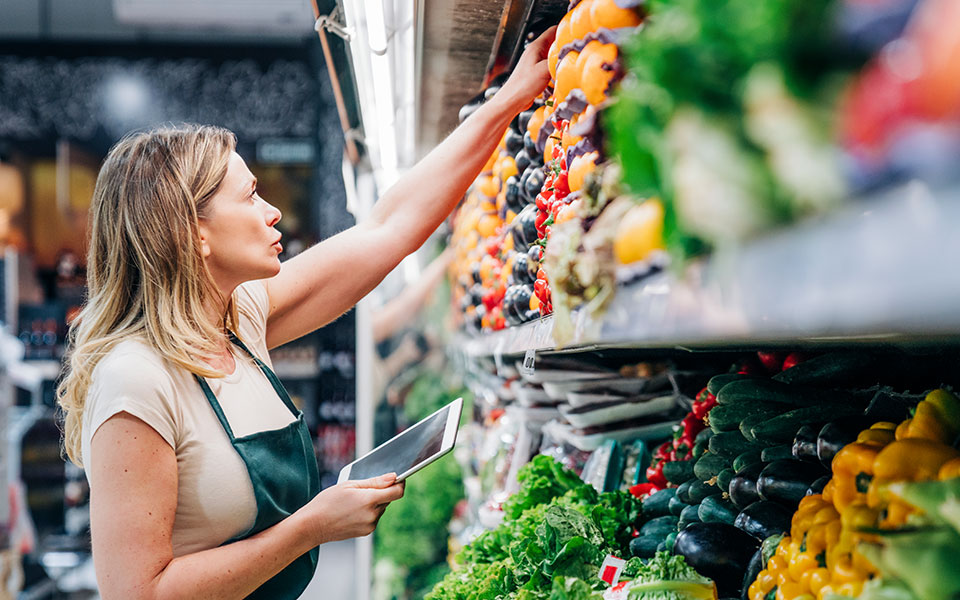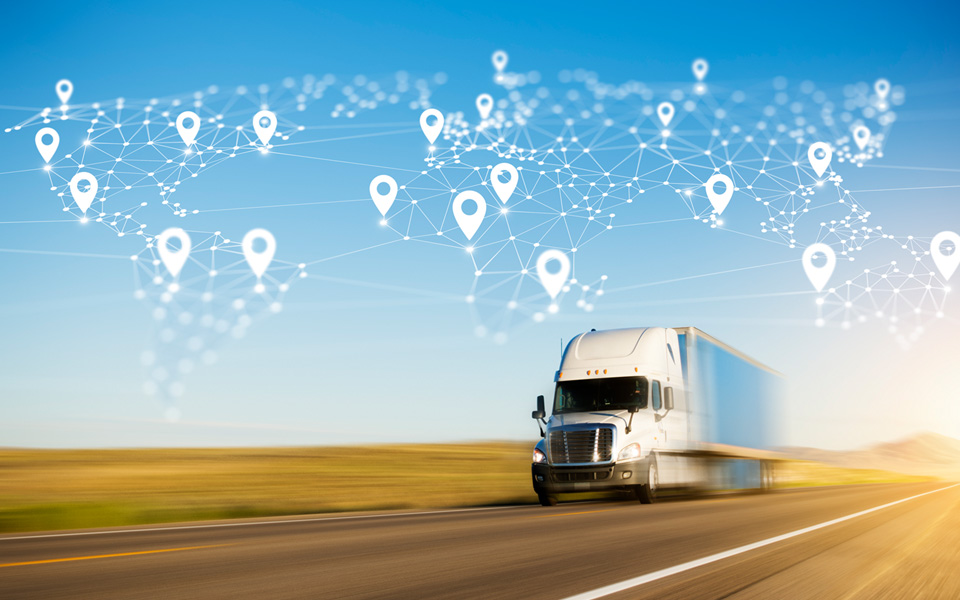FOB or LTL? There’s loads of differences

*On June 1, 2023 Emerson’s Climate Technologies business became a new standalone company – Copeland. Though our name has changed, we are building on more than a century of HVACR innovation and industry leadership, and Copeland continues to offer the same products, industry stewardship, and learning opportunities you’ve grown to trust. Information found on this webpage posted before June 1, 2023 may contain our old name or branding, but you can be at ease knowing it was created with the knowledge and expertise of Copeland.
Maximizing the quality, safety and shelf life of perishable goods is in the best interest of every major stakeholder in the cold chain. Producers and growers want to maintain products at their ideal temperature setpoints. Carriers and transport teams are tasked with delivering products to retailers on time and in optimum condition. Retailers depend on a continuous stream of fresh and safe produce, protein and floral offerings to keep consumers engaged and profits steady.

As I noted in my recent article on FleetOwner.com, however, when it comes to shipping perishables, the owner of the product — who can face legal penalties if it’s delivered with signs of temperature abuse — varies depending on the shipping method used:
- Free on board (FOB) shipments are owned by retailer transport teams from the moment products are loaded onto trucks. In the event of a dispute, claims are typically directed to the shipper or carrier.
- Less-than-truckload (LTL) shipments, also known as delivered loads, are owned by the shipper until the product reaches the retail distribution center (DC) or another destination. In this case, the shipper, carrier and sometimes the receiver are potentially liable.
Which shipping method is better? Although you can potentially achieve your goals with either one, it’s important to understand their pros and cons.
In either case, Emerson* GO loggers and real-time trackers are invaluable for monitoring temperatures during shipment. The objective record of conditions they provide has proven its value so often that many retailers now require their use, whether shipments are handled by their own internal DC transport teams or third-party carriers.
The FOB advantage
For retailers, FOB truckloads offer more control and predictability over perishable shipments. FOB trucks are typically loaded in high-volume growing regions, where trailers can be filled quickly with different types of produce. It’s easier to combine produce types with similar temperature requirements, arrange loads according to best practices, and optimize weight distribution. Critically for perishable items, FOB shipments are also the fastest way to get these time-sensitive cargoes to their destinations as quickly as possible.
Since retailers have more control over FOB shipments, it’s usually sufficient to utilize third-party temperature loggers — a standard practice in many temperature control for quality (TCQ) programs. These devices enable retailers to keep historic records of each shipment, which are downloaded on arrival at DCs.
LTL considerations
Typical LTL shipments often include a mix of lower volumes of similar perishable products or a single protein category of the same chilled or frozen refrigeration and/or temperature range. For example, different types of frozen seafood may be onboard but would not be mixed with poultry or meat items. As such, shipping LTL loads comes with unique challenges, increased opportunities for disruptions and less control.
LTL shipments can take longer to build — sometimes days — which can extend the time needed to maintain proper refrigerated trailer temperatures, potentially shortening shelf lives once products arrive in stores. They’re also more prone to random loading configurations, causing airflow, stacking and freight balancing issues.
Quality and safety concerns can occur when multiple types of perishables — with different holding temperatures and handling requirements — are loaded on the same truck. Although this can also happen with FOB loads, it’s far more common with LTL shipments. In addition, loading and unloading processes are inherently more complicated because frequent and prolonged openings of refrigerated trailer doors can cause temperatures to rise.
Because LTL shipments are “delivered loads” — of which retailers can accept or reject ownership upon delivery — many retailers leave quality initiatives in the hands of shippers or carriers. Despite the additional variables, they’re also less likely to utilize third-party tracking devices. Unfortunately, this puts LTL shipments at a greater risk of temperature abuse and shipping errors that could impact product shelf life, quality and safety. In addition, more than 90 percent of carriers are independent truck owners, many of whom don’t keep refrigeration units in continuous cooling mode — a strategy used to save fuel costs that can cause damaging temperature swings, even if a trailer stays below the setpoint.
Because of all these variables, stakeholders should always use real-time tracking devices with LTL shipments. When combined with cloud-based cargo monitoring software, they give you live notifications of temperature abuse while providing a record of shipment activities and conditions to help resolve claims and disputes.
Third-party trackers deliver ROI quickly
GO real-time trackers and loggers — combined with Oversight cargo software and services — provide you with the assurance you need to help prevent temperature abuse. For real-time visibility and the added protection of high-value LTL shipments, GO real-time trackers can help you protect product safety and track delivery times to meet consumer demand.
Both GO loggers and real-time trackers provide objective records of refrigerated trailer temperatures throughout transit, serving as the backbone of quality and safety programs for perishable shipments.
To learn more about how Oversight cargo services can protect FOB and LTL shipments, visit the Oversight Software and Services page here.

8 proven strategies for rigorous cold chain management
by Dan Knauer | Cold Chain
Preparing for the approval and safe use of A2Ls in commercial refrigeration applications...
Protection for high-value shipments just got even better
by Alex Axelsson | Cold Chain, Transportation
We’re excited to announce the release of Copeland’s newest real-time tracker, the GO Real-Time...

Three proven strategies to prevent cargo theft
by Chris Lafferty | Cold Chain, Transportation
The over-the-road (OTR) transport industry is experiencing a surge in cargo thefts. As thieves...
The post FOB or LTL? There’s Loads of Differences appeared first on Copeland.